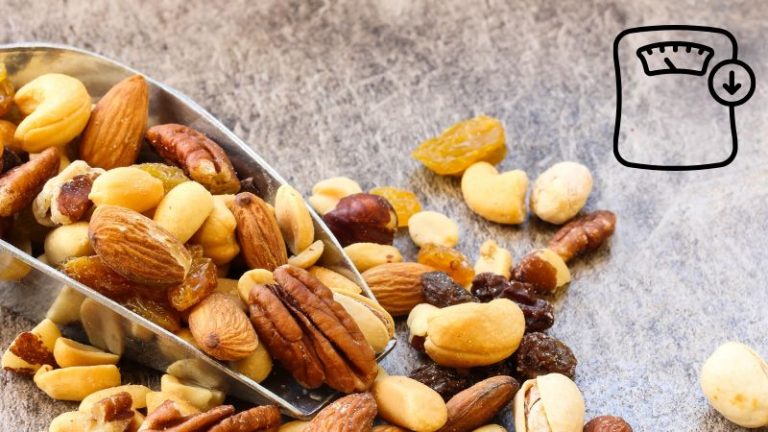Is Dark Chocolate Good For Weight Loss?
You might think it’s impossible to lose weight and eat chocolate, but what if we told you it was actually a good weight-loss choice? Since its discovery, dark chocolate’s rich, bittersweet flavor and significant health benefits have made it a popular choice among individuals who want to satisfy a sweet appetite without derailing their diet plans. But is dark chocolate good for weight loss, or is this simply another diet fad?
Let’s dive into the research behind dark chocolate and see if it is a better option for weight loss without compromising taste or satisfaction.
Key takeaways
- Dark chocolate includes flavanols, which have been associated with potential weight loss effects.
- Consuming dark chocolate may help you cut back on calories since it decreases your appetite and makes you feel full for longer.
- When compared to other dessert options, dark chocolate is a healthy option.
- You can avoid feelings of starvation or over-restriction with the help of a pleasant and indulgent treat like dark chocolate.

The science behind dark chocolate and weight loss
- Flavanols: Antioxidants called flavanols are prevalent in dark chocolate because cocoa beans contain them. Flavanols have been proven to lower inflammation, increase insulin sensitivity, and perhaps decrease the risk of heart disease. In a study published in the Journal of Agriculture and Food Chemistry, participants who consumed a high-flavanol cocoa beverage for four weeks showed enhanced insulin sensitivity and reduced levels of oxidized LDL cholesterol compared to the control group.
- Theobromine: Another component in cocoa called theobromine has been related to shedding pounds. A recent study in the Journal of Agricultural and Food Chemistry found that theobromine caused mice to burn more calories and lose weight. This indicates that theobromine may help with weight loss.
- Overall calorie content: Dark chocolate may have certain health benefits because of its chemical content, but it is still high in calories. About 600 calories in a portion of dark chocolate (between 70 and 85% cocoa solids) weighs 100 grams. Dark chocolate can help you lose weight, but only if you eat it in moderation and don’t let it become an out-of-control part of your diet.
How dark chocolate fits into a healthy diet?
Moderation is key: Dark chocolate can be part of a healthy diet, but it should be used in moderation. Even dark chocolate can contribute to weight gain and other health problems if consumed excessively. Therefore, a moderate serving size, such as one ounce or less for 3 to 4 days per week, can cause no harm.
Choosing high-quality chocolate: The quality of the dark chocolate you purchase is important. For optimal health benefits, choose chocolate that contains a high percentage of cocoa solids (70% or more) and few additional ingredients. High-cocoa-content dark chocolate has fewer calories, less sugar, and more healthful flavanols than milk chocolate.
Parking with healthy foods: Combining it with other nutritious options can make dark chocolate part of a well-rounded meal plan. A tiny piece of dark chocolate is an excellent complement to fresh berries, almonds, or tea.
Nutritional facts about dark chocolate
- The main additives in dark chocolate include cocoa solids, sugar, and fat (usually cocoa butter).
- On average, the percentage of cocoa solids in dark chocolate ranges from 70 to 99%.
- Additional basic ingredients in dark chocolate include vanilla, soy lecithin, and a variety of natural and artificial flavors.
To give you an idea of what goes into a typical 100-gram bar of dark chocolate containing between 70 and 85% cocoa solids, here is a breakdown of the typical proportions of the different ingredients:
- Calories:600
- Total Fat: 46 grams
- Saturated Fat: 28 grams
- Cholesterol: 0 milligrams
- Total Carbohydrates: 44 grams
- Dietary Fiber: 11 grams
- Sugars: 24 grams
- Protein: 7 grams
It’s worth noting that the nutritional value of dark chocolate varies by brand and ingredient. In addition to sugar and fat, dark chocolate also offers a variety of valuable micronutrients such as flavonoids, iron, magnesium, and copper.

Additional health benefits of dark chocolate
- Improves insulin sensitivity
Increased insulin sensitivity, or the body’s natural capacity to use insulin to control blood sugar, is one of the many health benefits of eating dark chocolate. Anyone struggling with insulin resistance or type 2 diabetes may benefit greatly from this. Flavanols found in dark chocolate have been linked to increased synthesis of nitric oxide, which in turn can boost blood flow and decrease inflammation.
- Enhances mood
Studies have found that eating dark chocolate raises levels of the feel-good chemicals endorphins and serotonin in the brain, resulting in a more upbeat disposition. Natural molecules called endorphins are linked to experiences of euphoria and pleasure, while the neurotransmitter serotonin works to maintain a positive frame of mind.
- Prevents heart disease and risk of stroke
Studies have found that eating dark chocolate can lower your chance of having a stroke or heart attack. Scientists believe this is because of the flavanols in dark chocolate, which have been linked to positive effects on cardiovascular health, including reduced blood pressure, inflammation, and enhanced blood flow. Dark chocolate’s high antioxidant content also means it’s less likely to contribute to the arterial plaque by preventing the oxidation of LDL cholesterol.
- Prevents memory loss
Flavanols in dark chocolate may also protect against brain fog and dementia. This is due to the fact that flavanols have been demonstrated to enhance cognitive performance by increasing brain blood flow. A
- Reduces risk of diabetes
You may cut your chances of developing type 2 diabetes and enjoy dark chocolate simultaneously. The flavanols in dark chocolate are responsible for this, as they increase insulin sensitivity and decrease inflammation. One study found that over two years, eating dark chocolate was correlated with a reduced chance of acquiring type 2 diabetes.
Final verdict
When consumed in moderation, dark chocolate is a tasty and wholesome indulgence that can positively affect health. The benefits of dark chocolate are extensive, ranging from aiding in weight loss and increasing insulin sensitivity to decreasing the risk of cardiovascular disease, a stroke, and dementia. Remember that a healthy diet is not limited to just one food item but rather consists of a wide variety of whole foods.
By including dark chocolate in a diet rich in fruits, vegetables, lean protein, and whole grains, you may get the advantages of this delicious treat while providing your body with a broad range of essential nutrients. As a bonus, making good eating choices is a gratifying and empowering experience that contributes to optimal physical and mental health.





